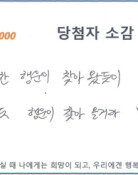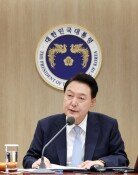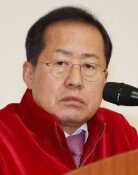N.K., China should take responsibility for rapid THAAD deployment in S.K.
N.K., China should take responsibility for rapid THAAD deployment in S.K.
Posted March. 08, 2017 07:03,
Updated March. 08, 2017 07:09
The South Korean and U.S. military authorities pushed ahead with steps to deploy the terminal high altitude area defense system in South Korea in a surprise move on Monday night. After the arrival of two missile launchers as the first batch of shipment for a THAAD unit at the U.S. air base in Osan, South Korea, a surveillance radar (AN/TPY-2) and interceptor missiles to comprise one THAAD unit (six launchers) will be deployed at Seongju Country Club in North Gyeongsang Province within one to two months to be ready for actual combat mission. North Korea succeeded in miniaturizing a warhead through its fifth nuclear test in September last year, and conducted a test of a ballistic missile that is capable of striking U.S. military bases in Japan on Monday morning. Early deployment of the THAAD system is a defensive measure essential to protecting the national security of the Republic of Korea and to ensuring the Seoul-Washington alliance. The deployment of the advanced missile defense system was necessary even to change Beijing, which has not changed its stance against THAAD even after Pyongyang’s string of nuclear and missile tests.
U.S. President Donald Trump had a call with South Korean Acting President Hwang Kyo-ahn on Monday (U.S. time) when he said that the U.S. military would mobilize all of its capabilities to enhance deterrence against North Korea’s ballistic missile threat. The North has over 600 Scud missiles with a range of 300 to 700 kilometers, and 100 launchers among other weapons, and hence one THAAD unit in the South is hardly adequate to sufficiently intercept them and defend the country. An additional THAAD unit that is deployed for U.S. Global Response Force in preparation for an armed conflict can also be brought into the Korean Peninsula within 96 hours, but they are hardly adequate to ensure watertight defense of this country. Seoul may need to proactively consider deploying three to four THAAD units to adequately protect 50 million South Koreans by mobilizing all of the U.S. military’s capabilities as vowed by President Trump.
Responding to the measure taken by South Korea to exercise its security sovereignty and ensure the Seoul-Washington alliance, the Chinese foreign ministry warned on Tuesday that China will protect its security interests by taking the necessary measures for THAAD, adding that South Korea and the U.S. should take all the responsibilities. It is a statement that is ridiculous at best. Unless China, the chair country of the six-way denuclearization talks, has sided with North Korea to enable Pyongyang to earn time, the North would not have reached a phase where it has almost completed nuclear armament including an intercontinental ballistic missile. "South Korea was a Japanese colony until 1945, and has become a country that is like a colony of the United States by having tens of thousands of U.S. troops stationed in the South, said the Global Times, a sister newspaper of the People’s Daily, the official newspaper of the Chinese Communist Party, on Monday. It is truly insulting. If a country is considered a colony just because an ally’s troops are stationed, are Japan and Germany also U.S. colonies? Chinese media outlets are merely the Community Party’s propaganda machines, but they apparently have lost integrity and dignity as journalists.
The Chinese government did not give permission for chartered flights bound only to South Korea in March again after January and February. China’s retaliatory measures against THAAD, which started with boycott of South Korean products, have expanded widely, and they could further spread to political and military arenas. The higher such situation escalates, South Koreans will realize all the more that nothing is as important as national security and will further strengthen the South Korea-U.S. alliance and security cooperation among Seoul, Washington and Tokyo, which share the values of freedom and democracy. China and North Korea may have to take full responsibility for ramifications.
Headline News
- Israel prepares for retaliation against Iran
- Samsung reclaims top spot, surpassing Apple in smartphone market
- 77% of Koreans in 20s and 30s are 'Kangaroo Tribe' due to job crisis
- KBO referees embroiled in controversy over ABS decision concealment
- Inflation, oil price surge put double shock on global economy







